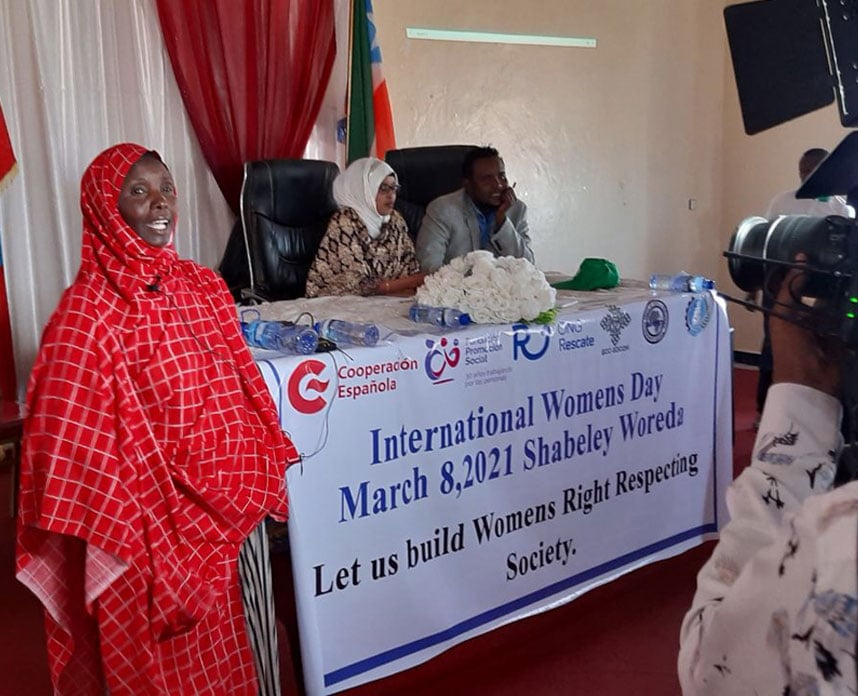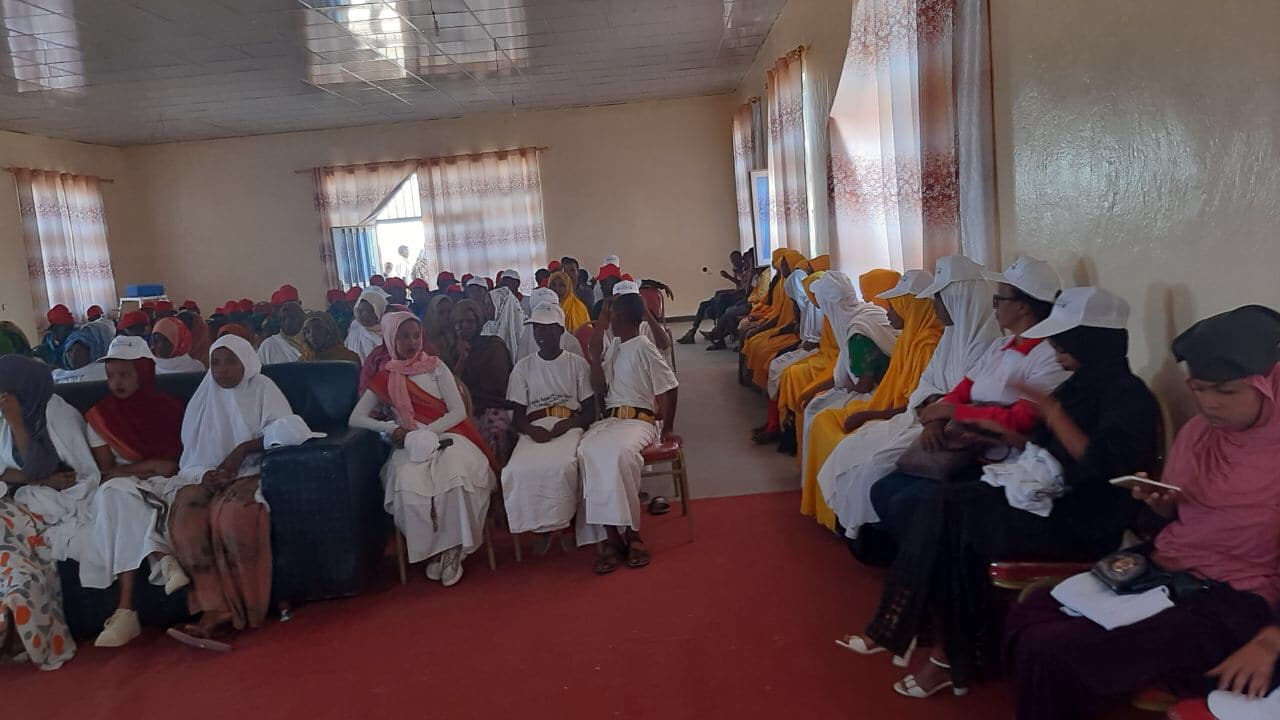We work to end violence against women and girls and their social, political and economic empowerment in the Somali Region (Ethiopia).
This work is one of the three specific objectives of the AECID-funded agreement that we implement in the Somali Region of Ethiopia in consortium with the RESCATE NGO and ECC-SADCBOH and HAVOYOCO local partners.
As in other regions of Ethiopia, the Somali Region has a patriarchal society in which men have the main power in private and public life. This social system influences cultural norms, practices and traditions and there are entrenched gender stereotypes regarding the roles and responsibilities of women and men in the family and in society.
Women and girls have traditionally performed their roles in the domestic sphere and these activities are commonly considered inferior.
Furthermore, due to the traditional culture of Somalis, we are in one of the most violent areas of the world for women.
Against this backdrop, on International Women’s Day, we carried out several activities to make this celebration visible and to raise awareness of gender equality among rights holders and duty bearers.
On 5, 6 and 7 March, our local partner ECC has conducted three awareness-raising campaigns together with the Women’s Desk in three woredas in the Fafan Region.
The aim was to raise awareness on the International Women’s Day in the community and to engage the members of the community in a dialogue highlighting the fact that women deserve a future free of violence and with equal rights and opportunities as men.
120 members of the communities of three woredas in the area of implementation of the agreement participated.
Finally, yesterday, 8th March, a ceremony was held in the South Jijiga woreda (Shebele woreda) to commemorate this day and to give voice to women and men who practice and want an equal society between them.
The event was jointly organised with the Shebele woreda Women’s Bureau and was attended by senior women’s officers from the Somali region and Shebele woreda, as well as traditional leaders, religious leaders and right holders from the intervening kebeles. Some 160 people participated.
Throughout the morning, women and men from the Women’s Bureau and the local administration, women from the community, and girls from a local school expressed their views to celebrate and call for more opportunities for women and a life free of violence against them.
Among the issues discussed were violence against women, unequal opportunities, the role of community and religious leaders in women’s empowerment and the lack of women’s participation in power and decision-making bodies.
The communication office of the Somali Regional Government sent communication technicians to record and broadcast the event to the media in the Somali Region.
At Social Promotion Foundation we hope that the message of equal rights and opportunities launched by the Somalis themselves will reach all girls, women and men so that the situation of inequality that many women live in will improve.









